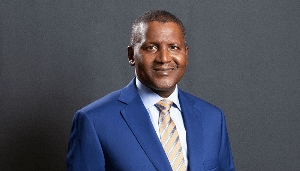The Director-General of the Ghana Standards Authority (GSA), Professor Alex Dodoo, says Ghana needs to take engineering seriously in the country’s transformation.
He said the recent earthquakes in Turkey and Syria had shown the world and Ghana, in particular, that we have to take engineering seriously.
Speaking during a meeting with the management and top officials of the Engineering Council of Ghana recently, Prof. Dodoo said the Ghana Building Code, which was launched by the Vice President, is the most modern in the world at the moment.
According to him, it is in line with the President’s call to ensure that all buildings in Ghana are resilient, as the country is situated in an earthquake zone.
He said to enforce the tenets of the Building Code, which is to ensure that buildings and structures in Ghana all meet the standards to protect lives and facilitate trade, institutions such as the GSA and the Engineering Council, must partner to make it possible.
He pledged the Authority’s support to the Engineering Council to enable it to carry out its mandate.
“At GSA, our core mandate is consumer protection and trade facilitation. The new GSA Act places emphasis on research, education, and publication,” Prof. Dodoo noted.
“We, therefore, need to partner in the engineering of safer buildings and creating jobs for the Ghanaian space,” he added.
For his part, Dr. Kwame Boakye, the Board Chairman of the Engineering Council of Ghana, who led the delegation, also called for a more closer and aggressive partnership between the two bodies to promote and enforce standards in the building and construction sector of the country.
Dr Boakye said that it was important that the country recognised the Engineering Council as a key stakeholder in its development.
“Engineering has a key role in maintaining good practices and standards. Standards are not meaningful if we do not enforce them,” he noted.
“In order to ensure that the populace adhere to standards, especially in the built environment, we have to enhance our long-standing partnership by collaborating effectively in educating the public about the standards and enforcing them,” he added.
It was agreed during the meeting that the two bodies commit to the partnership by reviewing and expanding the terms spelt out in their Memorandum of Understanding (MOU), which was signed in 2021.
The 2021 MoU was to ensure strict compliance to the use of engineering products and engineering best practices as well as to promote public education on engineering practices and use of engineering products.
Business News of Thursday, 16 March 2023
Source: GNA

















